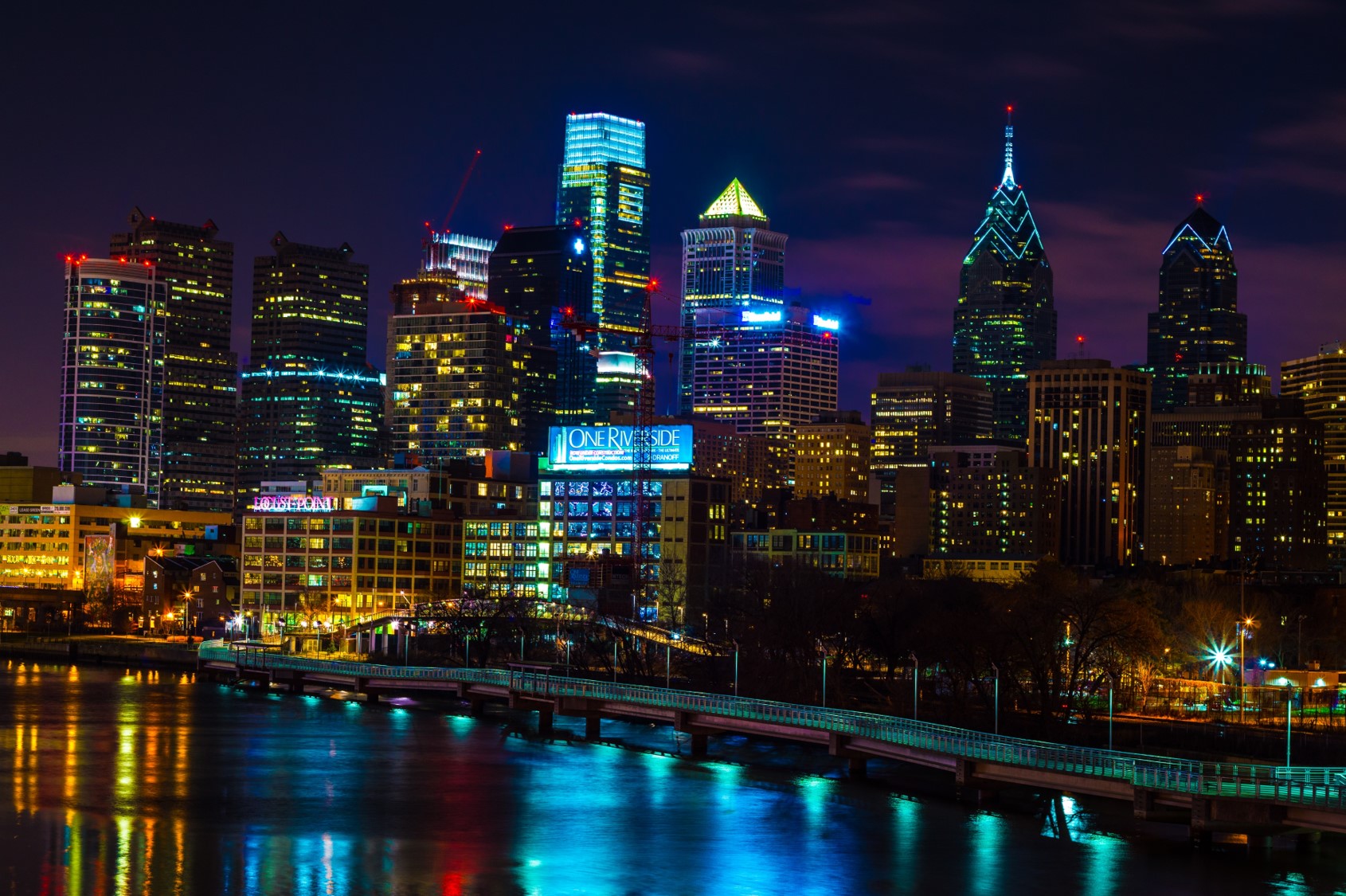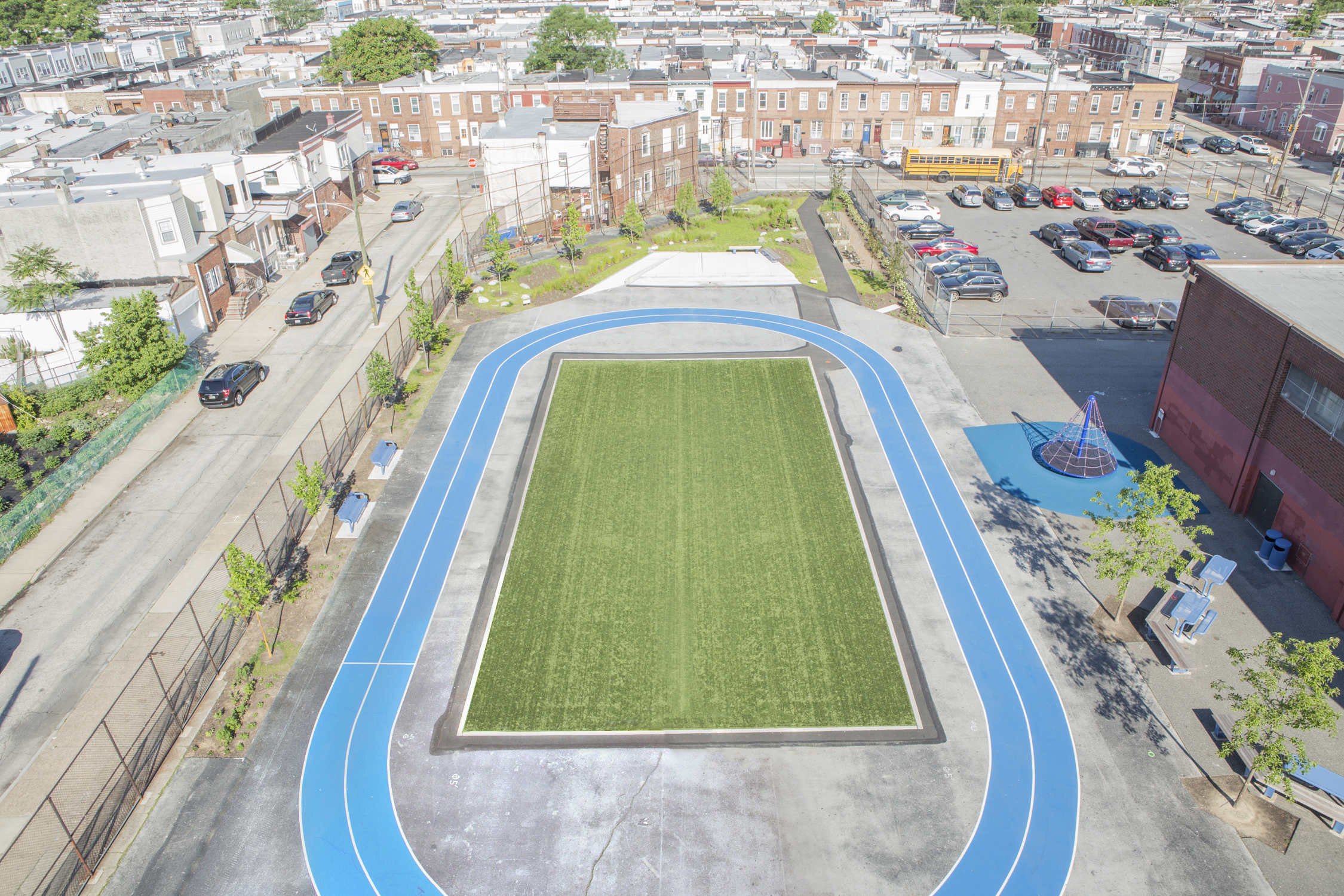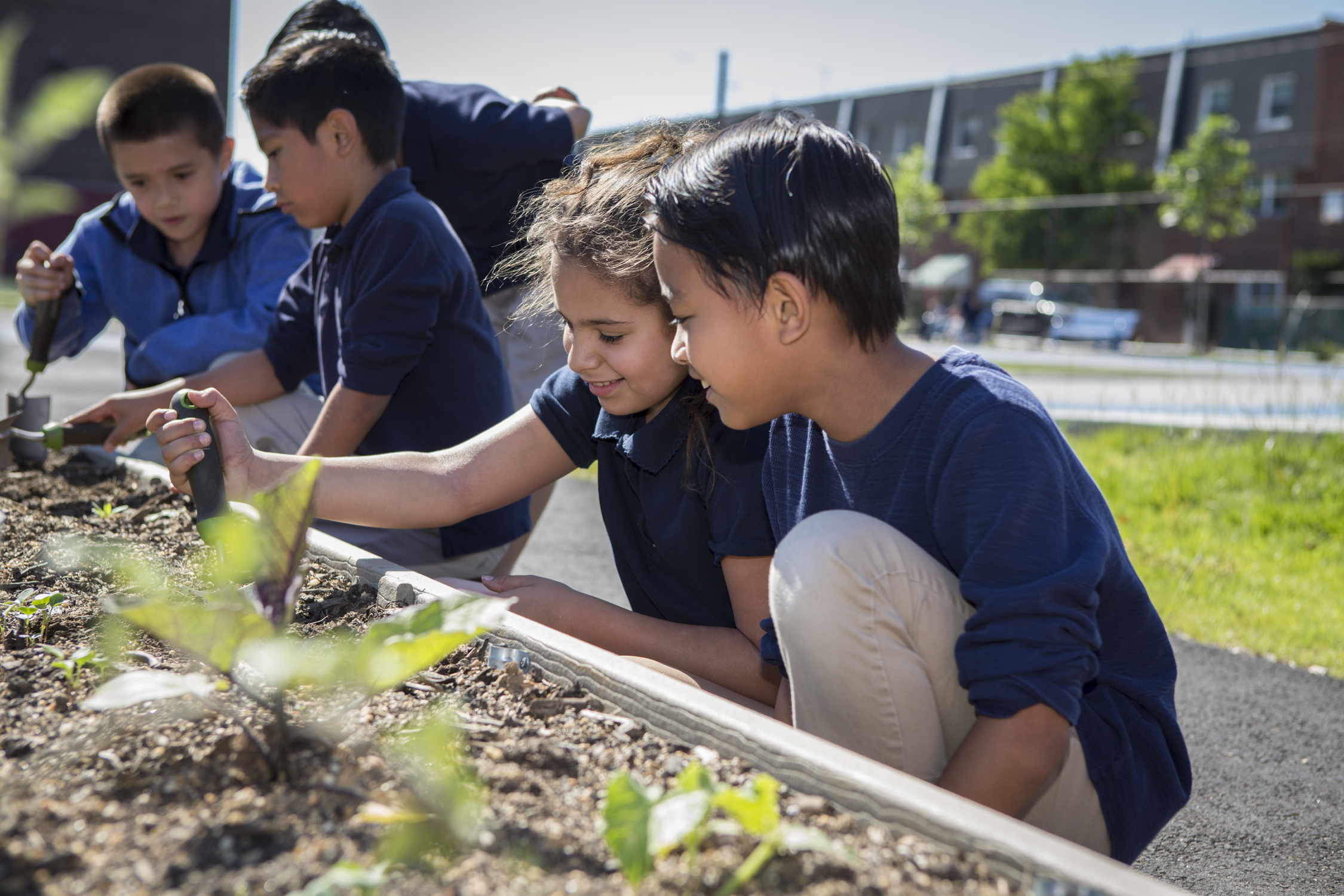
CLIMATE-SMART CITIES PHILADELPHIA
Public, nonprofit, and philanthropic partners in Philadelphia are working together to create a more equitable, livable city – and the redevelopment of parks and public spaces is a key tool for advancing that mission. The Trust for Public Land is fully committed to redeveloping Philadelphia parks and playgrounds to achieve multiple benefits related to equity. Since 2012, we have worked with residents and partners to create spaces for community cohesion, education, play, and public safety. This impact is deepened when these spaces are built to include rain gardens, new trees, and natural habitat that all serve to enhance climate resiliency. This environmental focus is crucial to supporting equity, because climate challenges such as the urban heat island effect, stormwater runoff, and riverine flooding are often concentrated in neighborhoods of high poverty.
With funding from The Kresge Foundation and the William Penn Foundation, the Trust for Public Land’s national Climate-Smart Cities program is partnering with the City of Philadelphia and local nonprofit organizations to provide key planning and decision-making support to drive equitable green infrastructure implementation across the city and in particular at schools, libraries, community centers and other public spaces. The cross-sector partnership convened to implement this work includes staff from multiple city departments as well as community partners from local organizations. Together, we’re bringing cutting-edge science, Geographic Information Systems (GIS) planning, and fostering collaborative networks to drive park, open space and green infrastructure solutions to help secure a climate-resilient future for the city of Philadelphia.



Our Climate-Smart Cities process bring together a team of experts to research, design, and build the infrastructure and tools that help increase our resilience to climate change. Our strategy is to:




The Climate Challenge
In 2015, the Mayor’s Office of Sustainability released a climate vulnerability assessment for the city titled Growing Stronger: Toward a Climate Ready Philadelphia (2015). The report notes that increased summer temperatures, sea level rise combined with storm surge, and stormwater runoff pose the biggest challenges to the City and its residents. Climate projections indicate a dramatic increase in number of days per year above 95°F. Overall precipitation is expected to increase as well as the number of high-precipitation (rain and snow) events that can damage city infrastructure and put residents in harm’s way – in particular underserved communities and vulnerable populations.
Partnerships
This project would not be possible without the critical support from our diverse and knowledgeable Core Team advisers. The Core Team works to ensure the Decision Support Tool draws from the best available data and that the tool is designed to meet the needs of local practitioners. The following organizations and city departments are represented on the Core Team: Office of Sustainability, Mayor’s Office of Community Empowerment and Opportunity, Philadelphia Parks and Recreation, Philadelphia Water Department, Philadelphia Department of Public Property, Philadelphia School District, Philadelphia Office of Innovation and Technology, Mural Arts, and Urban Land Institute Philadelphia.
Parks for People – Philadelphia
Working in partnership with public agencies and local nonprofits, the staff at the Trust for Public Land are committed to ensuring everyone in Philadelphia has a high-quality park within a 10-minute walk of their home. Click the above link to learn how our staff are helping close the 10-minute walk gap and create parks and green space in underserved neighborhoods throughout Philadelphia.
